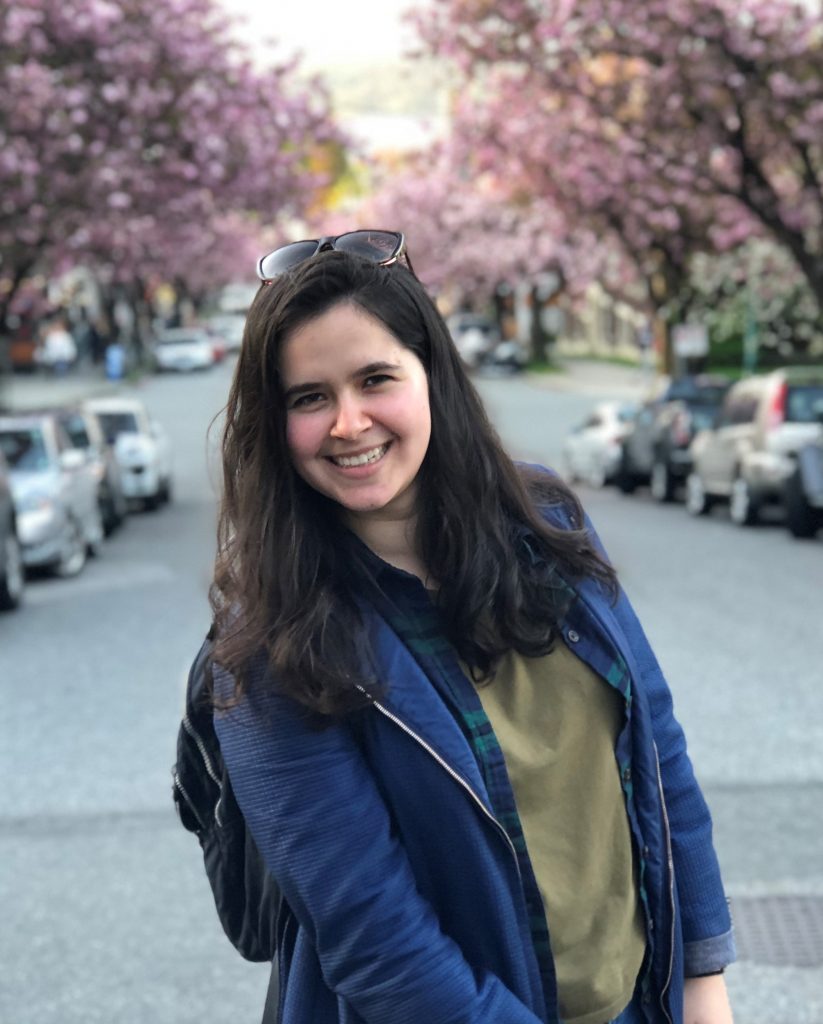
I completed my BSc (Biology major) at UBC in 2018. I first got involved with research after taking BIOL 205, as I fell in love with invertebrates. I worked in Dr. Leander’s lab under the supervision of postdoc Dr. Herranz who introduced me to the world of mud dragons and taught me microscopy and molecular techniques, for which I will be forever grateful. I was also really curious about ecology throughout my undergrad degree. I took a couple of directed studies in ecological labs (big thanks to Dr. O’Connor and Dr. Tseng for those opportunities) and decided to do my Master of Science in that field. I have been doing my masters under the supervision of two of the greatest scientists I know – Dr. Mary O’Connor and Dr. Laura Parfrey. My research looks into how freshwater microbes are affected by warming in environments with different degrees of connectivity (dispersal) between the habitats.
I have been a TA for BIOL 326 (Experimental Biology of Invertebrates) and twice for BIOL 205 (Comparative Invertebrate Zoology), both in-person and now online. From the titles of these courses, you can see I am quite passionate about invertebrate and microscopic creatures!
What do you most enjoy about being a TA?
I absolutely love witnessing the progress students make as the semester progresses, and just seeing students being passionate about the course! Our aim is to help them when we can, but also to encourage students to work independently and think critically. It always amazes me how much they learn by the end of the term. It is really rewarding to see how students improve their analytical, writing and answer development skills based on what they have learned.
What has been an interesting outcome of your TA experience?
I took these courses myself as a UBC undergraduate student, but TAing them has been a completely different and eye-opening experience. I now have a new perspective on teaching and how our role is not to give answers directly, but to provide guidance and give students the tools so that they can come to their own conclusions.
Additionally, I have improved my science communication skills, as students often ask clarification questions and it has been a great practice to address those. Finding new ways to explain the material when the first explanation might still be hard for students to grasp has been a great experience. This also made me realize how much one learns during teaching, even if you are familiar with the material!
What have you learned about teaching?
Knowing and teaching are two absolutely different concepts. Being knowledgeable does not guarantee you will be a good teacher. Teaching is a skill and requires practice. You really need to come up with tricks and ways to engage students and make the material interesting and exciting, but also comprehensive. I think a good teacher is one who can explain the most complex concepts in simple words.
What is a memorable experience from your own undergraduate experience?
Some of the most memorable courses I took at UBC had a field component. I took BIOL 402 (Aquatic Ecology) where we went to Whistler over a weekend and sampled glacially fed lake sediment and water for organisms – it was extremely fun and a great way to learn how scientists do field work. I was also lucky to take the ISCI 361 (Systems Approaches to Regional Sustainability) course and went to Hawai’i, where I learned about permaculture, volcanic activity, different sources of energy and to what degree these energy systems are sustainable! My advice to students is to take courses that can expand your knowledge by providing hands-on and outside-classroom experiences.
What are your plans following graduation?
Graduation is coming soon and I am yet to figure out my plans. I love doing research, science communication and teaching, but I am also interested in conservation and consulting that can have positive, visible and measurable impacts on our environment. I would love to explore career options in the environmental sector that will open doors to new experiences, where I can apply my passion for research and education to improve local and regional biodiversity and ecosystem health.